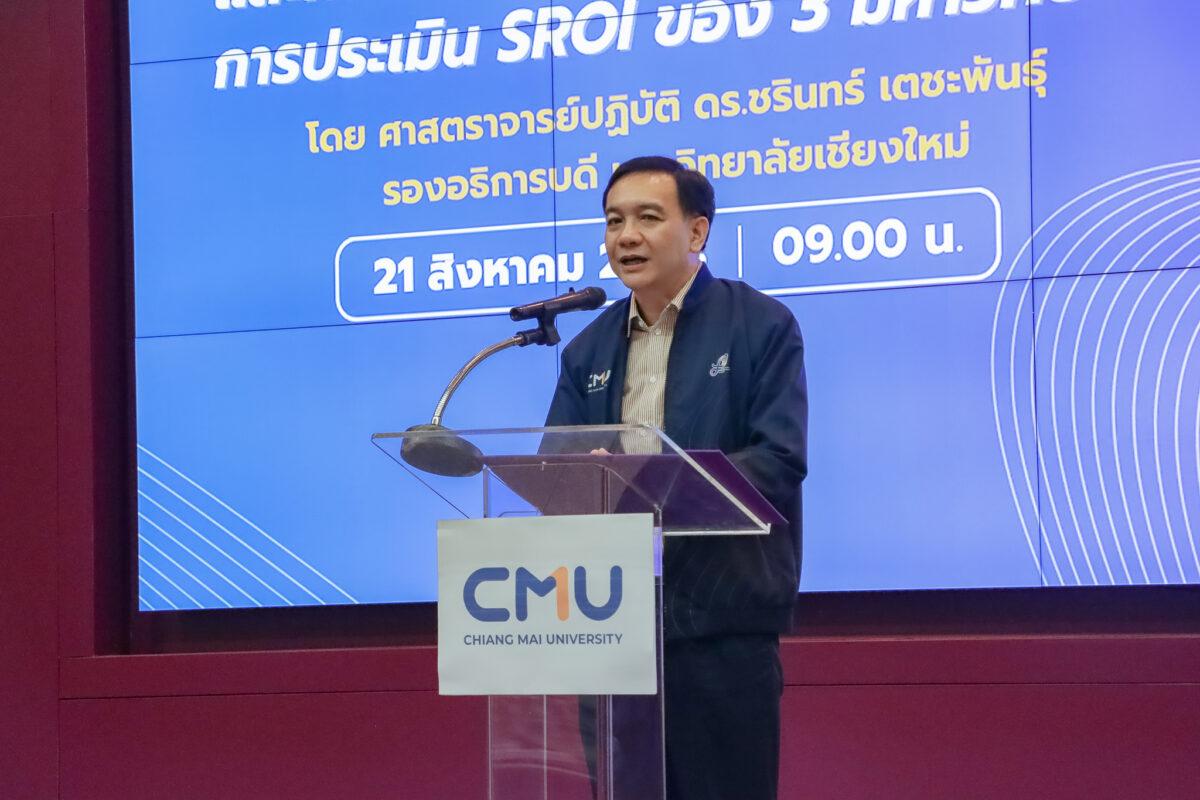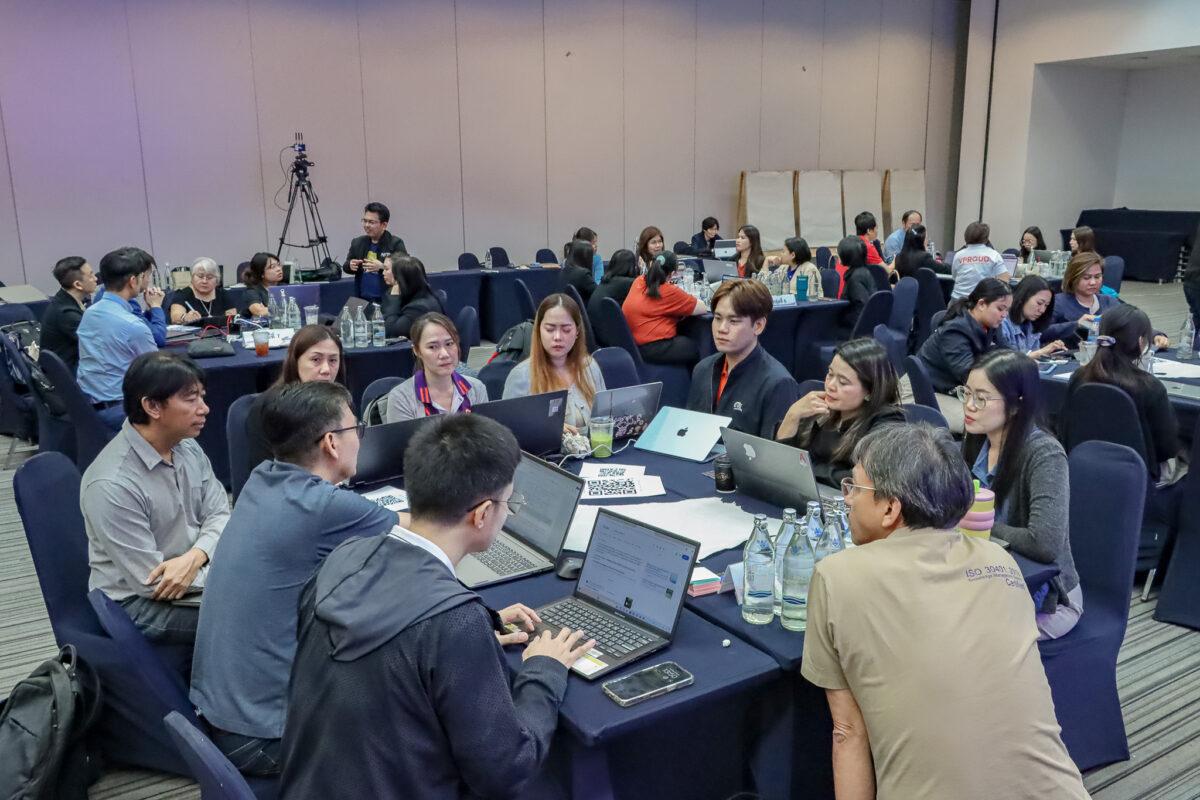On 21–22 August 2025, Khon Kaen University, led by Prof. Thidarut Boonmars, D.V.M., Ph.D., Vice President for Enterprise and Societal Sustainability, together with executives and staff, partnered with Chiang Mai University (CMU) and Prince of Songkla University (PSU) to organize the first “SROI Practitioner Workshop” under the collaborative framework “Three United Forces for the Nation.” The event was held at the Thong Kawao Conference Room, Academic Services Center, Chiang Mai University, with the objective of strengthening the capacity of personnel in economic and social impact assessment and advancing standards in Social Return on Investment (SROI) evaluation.

The opening ceremony was presided over by Prof. Charin Techapun, D.Eng., Vice President of Chiang Mai University, who welcomed the participants and emphasized the importance of cooperation among the three universities in moving forward with SROI assessment. He was joined by Professor Emeritus Dr. Sanchai Jaturasitha, Director of the Multidisciplinary Research Institute at CMU, who outlined the development and expansion of the “SROI Platform,” designed to raise national standards in social value assessment.

Throughout the two-day program, participants gained knowledge and practical skills in SROI methodology, ranging from defining the scope and identifying stakeholders to analyzing outcomes, setting indicators and impact targets, and calculating the value of social impact. The workshop combined theoretical instruction with applied practice on the jointly developed SROI Platform. Khon Kaen University also contributed real-world case studies in economics and evaluation, sharing insights that can be directly applied to communities and organizations.

The collaboration of KKU, PSU, and CMU reflects a shared commitment to advancing the United Nations Sustainable Development Goals. Particular focus was given to promoting quality education, fostering economic growth and decent employment, reducing inequalities, building transparent and accountable institutions, and strengthening cross-sectoral partnerships. By emphasizing comprehensive socio-economic impact assessment, the three universities aim to create a systematic evaluation process that can be applied at policy and operational levels. This initiative not only enhances academic capacity but also lays the foundation for long-term, sustainable benefits to Thai society.









